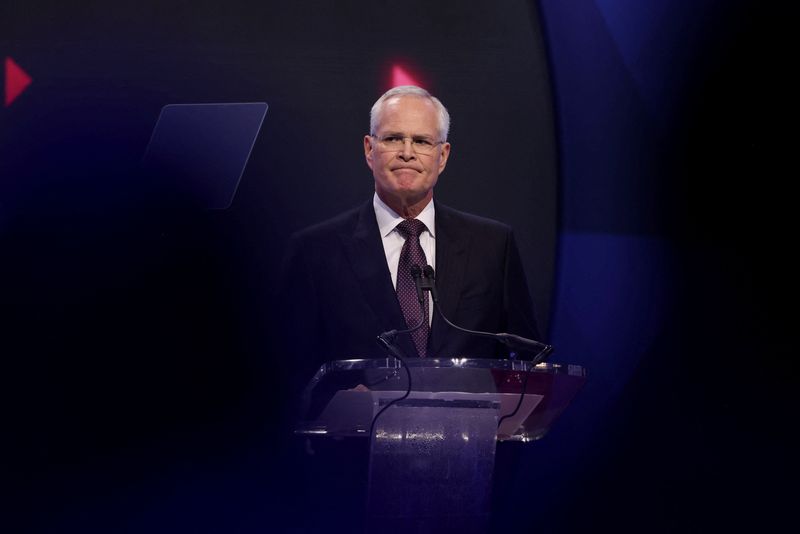(Reuters) - CalPERS, the biggest public pension plan in the United States, is considering voting against ExxonMobil (NYSE:XOM) CEO Darren Woods' re-election to the board amid shareholder discontent over a lawsuit it filed against two climate-focused investors, the Financial Times reported on Friday.
Investors led by U.S. activist investment firm Arjuna Capital and shareholder activist group Follow This earlier this year asked Exxon and other oil companies to adopt tighter climate targets and to set targets to reduce emissions produced by users of its products.
In January, Exxon filed a complaint in a Texas court seeking to prevent a climate proposal by activist investors from going to a vote during the company's shareholder meeting in May.
Arjuna Capital and Follow This subsequently withdrew the proposal but Exxon said in February it would continue to pursue a lawsuit against the two activist investors.
California Public Employees' Retirement System's (CalPERS) Chief Operating Investment Officer Michael Cohen told the FT the pension fund was "deeply concerned" about the case, adding it appeared to be an effort to silence critical shareholders.
"Exxon has gone well beyond any other company that we're aware of in terms of suing shareholders for trying to bring forward a proposal," he told the newspaper.
The fund holds a 0.2% equity stake in Exxon, based on recent regulatory filings.
"We remain concerned about any action that could undermine shareholders' basic rights. CalPERS encourages other investors to join us in voicing their opposition to this lawsuit, which attempts to silence investors," a CalPERS spokesperson said in an emailed statement.

"The U.S. system for shareholder access is the best in the world. To make sure it stays that way, the rules must be enforced or the abuse by activists masquerading as shareholders will continue threatening the system," Exxon said.
When asked if CalPERS is considering voting against Woods' re-election as board chair, Cohen said "correct ... there are conversations happening right now", according to the FT report.